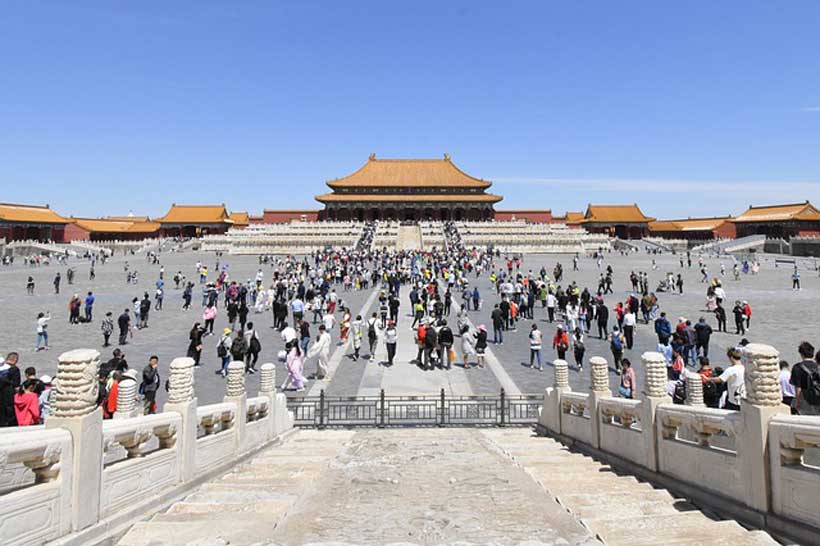There is no doubt that the United States wants to safeguard its global hegemony but this does not mean that the United States will remain first permanently, power will perhaps be shared in a world of permanent conflict. As for China, it does not have the ambition to rule the world. He wants to serve his interests, turn things to his advantage. However it has no missionary or proselytizing instinct, its culture does not have a purpose of global domination. Chinese emigrants who left for the world in the nineteenth and twentieth centuries brought with them a clod of earth to maintain the link with the country of birth. This is not what the European or American pioneers in search of the New World did.
The Chinese dream, like the Japanese dream of the past, would be to be the absent masters of the world, without having to administer it. Take advantage of it, take advantage of it, defend yourself from the risks that can come from the outside, say the Chinese but without governing it. This I believe is Chinese philosophy. In short, there is no global ambition in Chinese culture.
For example, on the maritime power front, there is no doubt that they want to develop a maritime power, intervene where their interests are at stake, defend themselves from threats, have a say in the rules that govern the world economy but this has nothing to do with American hegemony after 1945. China rejects the idea of world domination, even for itself.
The idea advanced by the Chinese nationalists is very different. They refer to the period of the Warring States, between the fifth and third centuries BC, a period in which no power, no order prevailed. In such a disputed world, China could carve out its own way without trying to impose any system.
Now, that China will succeed in becoming a great power is obvious. That it becomes such a dominant power as to create an order that replaces the existing order, it is legitimate to doubt it. Rather, the multipolar world will also be characterized by the presence of a certain disorder, in which Western countries no longer have the means to maintain the old order and China is likely to move away from its global responsibilities.
Having said that, we must not forget that China is a system of power in permanent mobilization and it is increasingly so with Xi Jinping marking a return to the spirit of Maoism. It has the advantages of an authoritarian and planned country, capable of pursuing long-term strategies without worrying about short-term profitability. In fact, the Chinese party state is restructuring the economy and society to capture innovation, to acquire it abroad by buying companies or stealing technology or even recruiting engineers. It is doing everything it can to remedy the lack of this fertile ground for freedom that we see as essential for innovation. Mobile telephony, the Internet and the so-called sharing economy have developed here faster than elsewhere. There is more social freedom in China – license, it should be noted – than the outside world believes, but certain things shouldn’t be touched. Criticism of the party state is not tolerated.
As far as Europe is concerned, this has proved to be very naive.
He hoped, for example, to rely on China to further his environmental goals, so much so that he had prepared a joint declaration to be proclaimed at the EU-China summit last June. But Beijing refused at the last minute due to the trade disputes between it and Brussels, confirming that Europe is not an essential strategic partner, but a market, a high-tech area where help can be found as in an open bar safe place to invest your capital.
As for the conflict in the South China Sea, Beijing, at least at present, has won the essential: the militarization of several coral reefs and the construction of artificial bases. The United States carries out many tests to show that access to its ships remains possible, but they are the only ones or almost the only ones, with France joining. China can therefore take a break to consolidate what it has earned, but of course there is a price to pay for Beijing: the rapprochement of Australia, India, Japan and Singapore.


